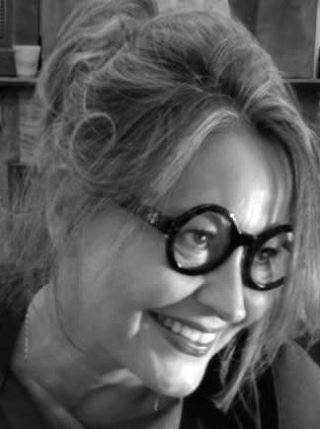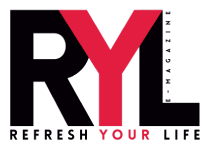 WORDS: RIALDA ŠEBEK, PSYCHOANALITIC, PSYCHOTHERAPIST, M.A., UKCP BACP REGISTERED
WORDS: RIALDA ŠEBEK, PSYCHOANALITIC, PSYCHOTHERAPIST, M.A., UKCP BACP REGISTERED
COVER PHOTO: PIXABAY.COM
In a cultural climate of ‘post truth politics’ objective facts are less influential in shaping public opinion than appeals to emotion and personal belief. What does it mean to be “authentic” in the overwhelming presence of the ‘fake it to make it’ trend? Or is it about people wanting so badly ‘to do it right’ that they have forged impossible goals for themselves?
What is it like to live in the cultural milieu of ‘post truth’?
Facts do not cease to exist because they are ignored and truth won’t change according to our ability to stomach it.
What makes as to be in self denial for the sake of approval? Whose approval we seek?
It’s ‘winner-takes-all-attitude’ which more often than not sets us on a path of fighting other people’s battles and losing our own peace of mind. The focal point in making ‘false self’ (Winnicott) to look ‘as if genuine’, is in the desired result. To assume an ‘as if’ mode as a safer way of being in the world; to fit and comply with the norms set without thinking it through. Orientation in this case is towards the ‘what?’ and not on the ‘how?’
How something is done or comes into existence opens up a narrative and possibility of 3D thinking – e.g. ’How babies are born?’ The question that sets out our idiosyncratic Book of Genesis and Oedipal trajectory.
‘How?’ can moves us forward absorbing the experience of the past. An authentic existence requires as its precondition a radical and previously not received experience of the past. It requires spontaneous curiosity; psychic movement embodied in the present time. There is no present like the present!
When it comes to authenticity I am somehow missing a verb. Take the verb ‘to intimate’; to intimate (lat. intimare) means ‘to make the unknown known’, ‘familiar’. In intimacy we appropriate internal relational space in which we can feel contained and true to ourselves with the other. We can also intimate knowledge, experience, conceptional and physical worlds.
The false-self has a problem with intimacy. It constantly feels under threat of being exposed as a fraud. It is anxiously keeping its undercurrent work employing defence mechanisms.
How we manage our potentiality to make an authentic living, makes the very fabric of the relational politics we adopt. If we adopt to be true only to what seems to please the internal Other, we make a bargain. It doesn’t have to be of Faustian proportions but still – a bargain. ’Faking it up’ can only come at the expense of reflexiveness and detachment from our inner reality. We create a Double with whom we have to live whether we like it or not: Emotional economies and bargains often produce strange internal bedfellows. A Double invented to win and compensate for genuine social wisdom, eventually may try to erase the original. This is when fashionable concepts becomes body snatchers. You truly become your fake Double.
Millenialls allegedly strive on feedback and expect more praise and reassurance than their parents of generation X. The latter had their emotional taste palate educated on ‘work hard- play hard’ lifestyles. With the permeation of technology in everyday life and the digital revolution, digital natives had their communication patterns adapted to new forms of relating. Moving the platform of communication to the cyber world introduced frequent use of spatial metaphors in language. The new written communication offered short form of expressions and symbols. Emoticons, emojis, likes, dislikes, the frequent use of acronyms, instant visual gratifications, individual and group attachments to social networks are all agents of change forging a new language which is structured around reduced number of emoticons as a framework for much wider scope of emotions. In this emoticon conundrum people end up giving ‘thumbs up’ to tragic events, kisses and ‘weeping smilies’ to obituary posts.
Has Freudian slip gone digital?
Like any other language, the language of emoticons simultaneously reveals and conceals. Language corrupts the mind and the mind corrupts language. The two are intertwined in a relationship full of contradictions. We are on a constant pendulum between authenticity and inauthenticity. At best we can only talk about aspiring, striving towards an authentic way of being but we can never arrive to settle and stay with it for good.

How to be true to yourself and live in tune with others? Some people believe that the ability to say “no” is a prerogative to authentic mode of being. To my mind, not so much wrong as much as that view is a reductionist one and fails to address the complexity of authenticity. Whenever we say “yes” to something we say “no” to something else and we do it so many times a day that it passes without notice.
For me the crucial question is, what kind of “self” do I want to be? In order to become that “self”, I need to organise my life in a certain way: I need to make decisions, meet ambivalence, anxiety, frustration and internal conflicts. I need to be clear what it is I want. There are risks to be taken. Getting to know ourselves and true nature of our desires can be frightening.
It is in anxiety that we come face to face with ourselves. What if that tête-à-tête becomes overwhelming or unbearable? What if searching through the jigsaw puzzle of our soul renders us riddled with guilt or shame? Maybe resentful and enraged? What comes before authenticity is our capacity to think under fire; being in touch with our emotions without losing our grasp over them.
Anxiety offers us the possibility to exercise our psychic metabolism and increase our capacity to think. Being able to stay with anxiety and tolerate disturbing emotional states increases our resilience and courage to shape ourselves. Rough seas make good sailors. Enjoy the journey.


